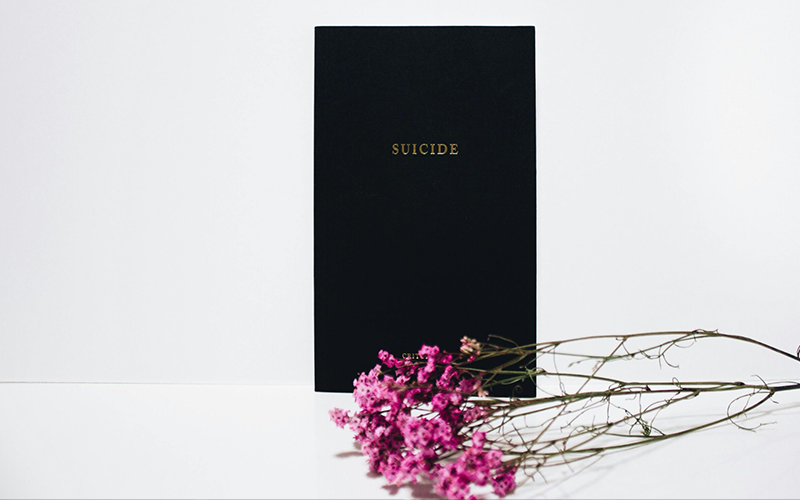Trigger warning for the readers: This blog will reference and discuss suicide. Reader discretion is advised.
When you think of September, you will most likely think of Gilmore Girls, Fall time, pumpkin spice, and back-to-school season. I do agree that September should be associated with these fun things, but September should also be known as suicide awareness month.
Although September 10 is recognized as Suicide Prevention Day, the entire month itself is dedicated to remembering those struggling with suicidal thoughts and serves as a reminder that mental health matters. Whether it is because of life being busy, cultural or societal norms, mental health is often overlooked, which is why raising awareness about it is recognized as an important first step. Especially for cases like suicide because, unfortunately, it is still heavily stigmatized and taboo to talk about in this day and age (CMHA National, 2025).
According to CMHA (2025), “every year, approximately 4,500 Canadians die by suicide, that’s an average of 12 people dying by suicide each day.”
According to CMHA National (n.d.), understanding suicide isn’t easy. While there may be risk factors that contribute to why a person might consider suicide, like grieving the lost of a loved one or having a mental disorder like schizophrenia or depression, there also might not be; in other words, not everyone with a diagnosis of schizophrenia or depression will attempt suicide. Similarly, not everyone grieving a loss will have the thought of suicide cross their mind. The commonly known phrase of “you never know what a person is going though” applies there too. Although statistics about women attempting suicide more and men being more likely to succeed in dying by suicide exist, you never know what a person is thinking unless it is shared. That being said, there are some warning signs that can sometimes be seen.
Expressions of hopelessness and/or helplessness may be a sign that someone is struggling with thoughts of suicide. More specifically, they might talk about having no future or seeing a way out of their situation. You may also hear them talk about suicide or death explicitly, but on the other hand, you may notice them becoming withdrawn from friends and family, giving away possessions, and losing interest in things they once liked to do. You might even see them exhibit some self-destructive behaviours, such as substance use (CMHA National, n.d.).
As you are reading this, you probably noticed the stark contrast in these warning signs. They range from talking explicitly about suicide to perhaps self-isolating from everyone in their life or from having no interest in anything to maybe partaking in self-destructive activities. As CMHA National (n.d.) highlighted, “there may or may not be warning signs that a person is going to attempt suicide. But if there are any signals, you need to take them seriously.”
Now this must be scary to think: what do I do if someone tells me that they are thinking of suicide?
Firstly, I would say to you that it’s okay to not have all the answers. Secondly, CMHA National (n.d.) suggested that people should look out for the signs, and listen to the person without passing judgment. The once held belief that ‘talking about suicide will give someone the idea to try’ was discovered to be a myth; it is not true. “If anything, it will show them they are not alone, that you care and you want to know how to help” (CMHA National, n.d.).
The next step would be to find help (usually), and that is when resources can come into play. In addition to calling 911 and going to the hospital, Canada has an array of crisis lines with trained responders and even some counsellors. I will list a few below, however, I would also like to acknowledge that this blog in no way encompasses all of the literature surrounding suicide. Also, I want to acknowledge that talking to another person about something like suicide is a big thing. It can take an emotional toll, so never feel as if you are alone in this. Especially for those who might be younger in age, if you are young, consider reaching out to someone you trust because they can help you as much as the other person. You do not have to be alone in this, and talking about it is always the first step.
Kids Help Phone: 1-800-668-6868
Suicide Crisis Helpline (Across Canada): 988
Alberta Mental Health Help Line: 1 (877) 303-2642
BC Mental Health Support Line: 310-6789
References
CMHA National. (2025, September 10). World Suicide Prevention Day: Remembering 9-8-8 and Raising Awareness. https://cmhahpe.ca/world-suicide-prevention-day-remembering-9-8-8-and-raising-awareness/#:~:text=CMHA%20HPE%20is%20joining%20communities,dying%20by%20suicide%20each%20day.
CMHA National. (n.d). Understanding Suicide and Finding Help. https://ontario.cmha.ca/documents/understanding-suicide-and-finding-help/
Image courtesy of Pexels.com
Note: The Free Your Mind Mental Health Society is an independent youth-led organization. The contents of this blog are not intended to be a substitute for professional medical advice, diagnosis, or treatment. Always seek the advice of your physician or another qualified health provider with any questions you may have regarding a medical condition. In the event of a medical emergency, please call your doctor or 911 or other local emergency numbers immediately.





Leave A Comment